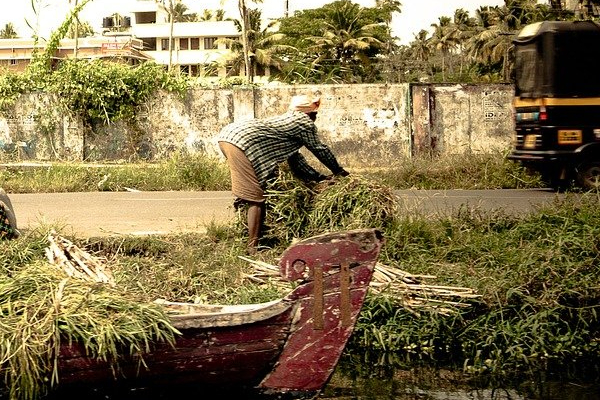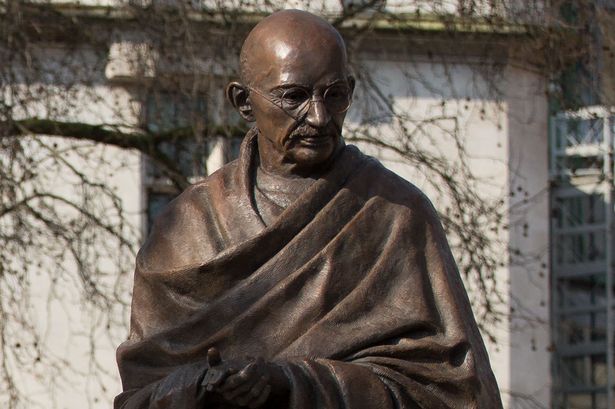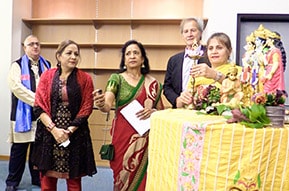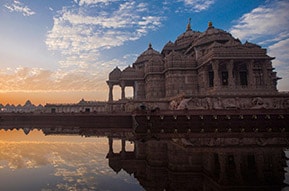Inspiring the Green Revolution through Faith
Faith groups have the capacity to do much more when it comes to nature and climate change.
Hinduism itself has much to offer and in practice, there are some amazing projects around the world where green values are in the forefront. But how much of this is accessible in the public domain and how are faith groups pushing the importance of the environment?
For a country like India where the vegetarian population comprises nearly half of the country, you would envisage that there is a natural alignment to a green environment. But with people’s thirst for wealth via consumable goods and the subsequent rise of pollution has made it difficult for the country to make a mark extensively. In areas of solar energy where entire airports are being powered by the sun rays is an astonishing achievement. Even Prime Minister Boris Johnson remarked on the solar programmes and there is much scope for the UK and India to work together. But for such a vast country, there is a long way to go.
In the UK, the BBC recently reported a Hindu Climate Action Group working with temples to help reduce waste during the festive season. What a wonderful idea.
Co-founding member Priya Koria, 21, from Bristol told the BBC: "There's a big lack of representation in terms of the Hindu community of the climate activism front, especially I think in the UK."
Due to coronavirus, the group has moved its work online to spread the message. With so many Hindu Festivals there is a huge scope to adapt and keep the traditions alive, but in the modern context where the green environment is at the forefront. Today’s generation will appreciate the role of faith a little bit more if issues on the environment and climate change are part of the agenda and the scriptures can offer suggestions and possible solutions for the future of humanity.
The Hindu Action Climate Group co-founder, Rajesh Purohit, 26, from Leicester, said: "The Maharabat talks about not displaying malice towards any living beings through your actions or words and having that level of kindness and giving in charity.
"It signs off by saying that is Sanatana dharma - that is Hinduism. That is what we're trying to achieve - we're trying to drive that level of giving back. "Just as Mother Earth gives to us, let's aim to give back."
A significant number of temples have already been adapting their procedures to be greener. For instance, the newly refurbished Jalaram Mandir in West London has already scrapped their use of single plastics. And working closely with the local supermarkets and organisations it also feeds thousands of homeless people monthly utilising the access foods from the stores. It is a win-win situation for everyone. Other temples are following all over the country.
There is the well-known Bhumi Project which is a global platform and network to encourage Hindus to take better care of the environment. It is a joint initiative of the Oxford Centre for Hindu Studies and the US-based Hindu American NGO GreenFaith.
Over the past 10 years, the Bhumi Project has established itself as the leading international Hindu voice on global environmental concerns. It has trained young Hindu climate leaders and issued the Hindu Declaration on Climate Change
Excerpt from the Hindu Declaration on Climate Change:
We call on all Hindus to expand our conception of dharma. We must consider the effects of our actions not just on ourselves and those humans around us, but also on all beings. We have a dharmic duty for each of us to do our part in ensuring that we have a functioning, abundant, and bountiful planet.
[...]
Climate change creates pain, suffering, and violence. Unless we change how we use energy, how we use the land, how we grow our crops, how we treat other animals, and how we use natural resources, we will only further this pain, suffering, and violence. On a personal basis, we can reduce this suffering by beginning to transform our habits, simplifying our lives and material desires, and not taking more than our reasonable share of resources. Adopting a plant-based diet is one of the single most powerful acts that a person can take in reducing environmental impact. In doing all of this, we help maintain the ecological and cosmic order, an order that allows life and existence to flourish.
For the full text, click Hindu Declaration on Climate Change
For the BBC story, click ‘Hindu scriptures can inspire greener living’









































